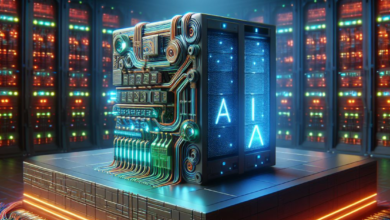82% Indians Believe Poll Candidates Should Not Use Generative AI In Promotional content: Adobe

Opinions expressed by Entrepreneur contributors are their own.
You’re reading Entrepreneur India, an international franchise of Entrepreneur Media.
Technology can either be a boon or a bane, case in point, different videos created using artificial intelligence (AI) tools of political leaders underscore how the use and abuse of tech impact political decisions of people during the on going general elections in India. Almost over four billion people globally are expected to head to elections and citizens are worried about the impact of deep fakes and misinformation on the future of polls. Without widespread tools to help people decide whether the online content they are consuming is true, as many as 82 per cent, believe that election candidates should be prohibited from using generative AI in their promotional content, according to Future of Trust Study by Adobe.
Governments and technology companies should work together to protect election integrity against the detrimental effects of deep fakes and misinformation. “We are excited about the potential for generative AI to enhance creativity and productivity, but it is also a transformational technology that demands thoughtful consideration of its societal impact. There is an urgent need for media literacy campaigns to educate the consumers about the dangers of deep fakes and to empower them with tools to discern fact from fiction. With the ongoing elections, now is the time to embrace protective technologies like Content Credentials to rebuild trust in the digital ecosystem,” said Prativa Mohapatra, vice president & MD, Adobe India.
Recently, an AI video showed Narendra Modi sporting a trendy jacket and trousers, dancing on a stage to a Bollywood song. The Indian prime minister reshared the video on X, saying “such creativity in peak poll season is truly a delight.” Another video showed Mamata Banerjee dancing but the background score is part of her speech criticizing those who quit her party to join Modi’s; state police initiated an investigation for the same.
Like all of you, I also enjoyed seeing myself dance. ???
Such creativity in peak poll season is truly a delight! #PollHumour https://t.co/QNxB6KUQ3R
— Narendra Modi (@narendramodi) May 6, 2024
This is Pure Gold ??
Whoever made this deserve an Oscar pic.twitter.com/VZRTC2JGsb
— Spitting Facts (Modi Ka Parivar) (@SoldierSaffron7) May 3, 2024
These are not isolated cases, earlier, with the onset of election season, more and more examples of synthetic and realistic deep fakes of politicians started appearing. Content on late M. Karunanidhi exhorting party cadre, a Tamil dub of Prime Minister Narendra Modi addressing a gathering in Chennai; and videos of Madhya Pradesh leaders Shivraj Singh Chouhan and Kamal Nath with doctored remarks.
Misinformation is regarded as one of the biggest threats facing society – a concern that may be eroding trust in certain platforms.·Concerns about misinformation are also impacting consumers’ use of social media platforms with 45 per cent Indians saying that they have stopped or curtailed their use of a specific social media platform due to the amount of misinformation on it. According to a World Economic Forum report, published in January, misinformation and disinformation pose the greatest risk to India ahead of the upcoming parliamentary election and over the next two years.
The Adobe study further found: As much as 92 per cent Indians believe that it is essential people have the right tools to verify if online content is trustworthy and said it is important to know if the content they are consuming is generated using AI. “Concerns regarding misinformation are impacting how people think about its potential effect on children, with 94 per cent of Indians saying that children should be taught media literacy skills as part of their school curriculum,” the report quoted.
The study Future of Trust Study for India, surveyed over 2,000 Indians about their experience encountering misinformation online and concerns about the impact of generative AI.
![[Webinar] Demystifying Gen AI: Insights for Legal Professionals – June 26th, 10:00 am PDT | Association of Certified E-Discovery Specialists (ACEDS) [Webinar] Demystifying Gen AI: Insights for Legal Professionals – June 26th, 10:00 am PDT | Association of Certified E-Discovery Specialists (ACEDS)](https://europeantech.news/wp-content/uploads/2024/05/1717184599_og.15858_1446-390x220.jpg)


